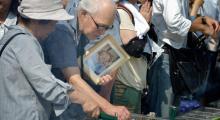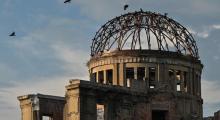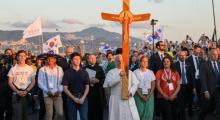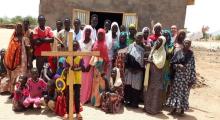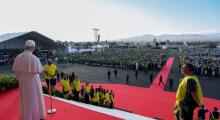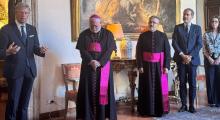Issued by the Catholic Center for Studies and Media - Jordan. Editor-in-chief Fr. Rif'at Bader - موقع أبونا abouna.org
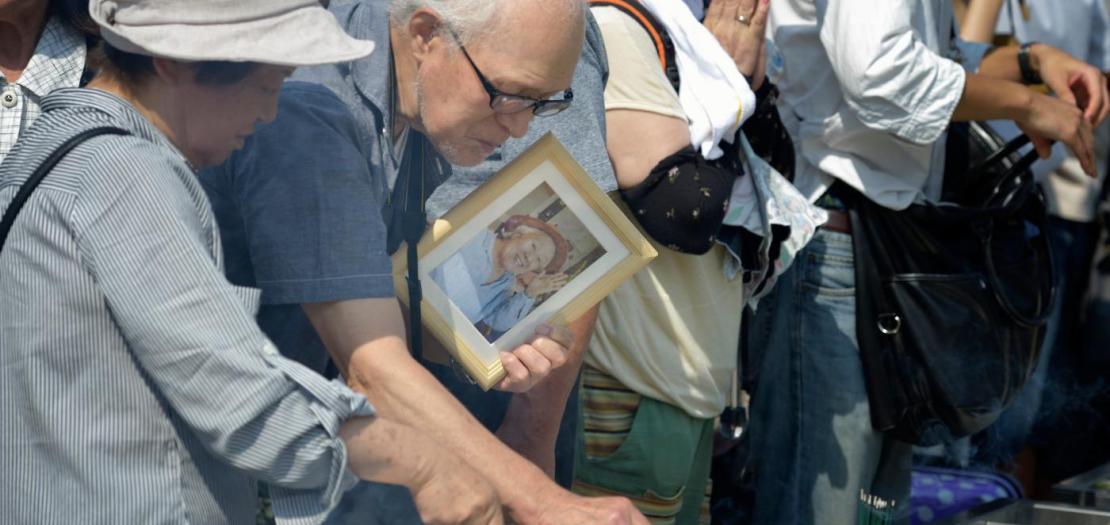
Bringing flowers and photos of their loved ones who have died from radiation poisoning, people pray on August 6, 2015, at a memorial in Hiroshima, Japan, that commemorates the victims of the atomic bombing of the city by the United States in 1945
“Hiroshima and Nagasaki were deliberate attacks, intended to result in mass deaths and total destruction, while the 2000+ nuclear weapons tests have been done with complete disregard to the consequences, in order to kill elsewhere and to demonstrate strength to enemies,” the statement reads. “The ongoing destruction and violence of the development of nuclear technologies and nuclear accidents demonstrate how dangerous we have made our world towards these ends.”
The statement calls for peace, nuclear abolition, and justice. “While the challenges are immense, this is a time to affirm that another way is possible: one rooted in solidarity, human dignity, and hope,” the statement reads. “The 80th anniversary of the atomic bombings offers a critical moment to reimagine our priorities.”
The statement honors the legacy of all who bear the wounds of nuclearism. “We lament the equating of nuclear weapons with technological, strategic, or political advancement, or with the assurance of safety,” the statement reads. “We reject the equating of the nuclear power industry as a symbol of decolonization or environmentalism.”
Peter Prove, WCC Director of the Commission of the Churches on International Affairs emphasized the timeliness of the issue. “The risk of the nuclear war, whether by design or accident, is once again a major and growing existential threat, among the many crises confronting the world today”. He said that the WCC has been an active participant in the civil society efforts that led to the Treaty on the Prohibition of Nuclear Weapons, currently signed by 94 States. “Surely no church or Christian community, nor any right-thinking person, can tolerate the development, possession or use of the most catastrophically, indiscriminately and inter-generationally destructive weapons ever devised by human beings”, Prove emphasized. “The doctrine of nuclear deterrence is necessarily founded on the willingness to actually use such weapons, which must be rejected from a Christian ethical point of view” he concluded.
The interfaith message commits to efforts that are local, regional, national, global, and metaphysical in scope. “The work for nuclear abolition vitalizes and prioritizes ethical ways of being that are based in truth, right relationship, and very real analyses of survival,” the text reads. “We must rise to the occasion and act together, as called by our faith traditions, moral compasses, and spiritual commitments.”


